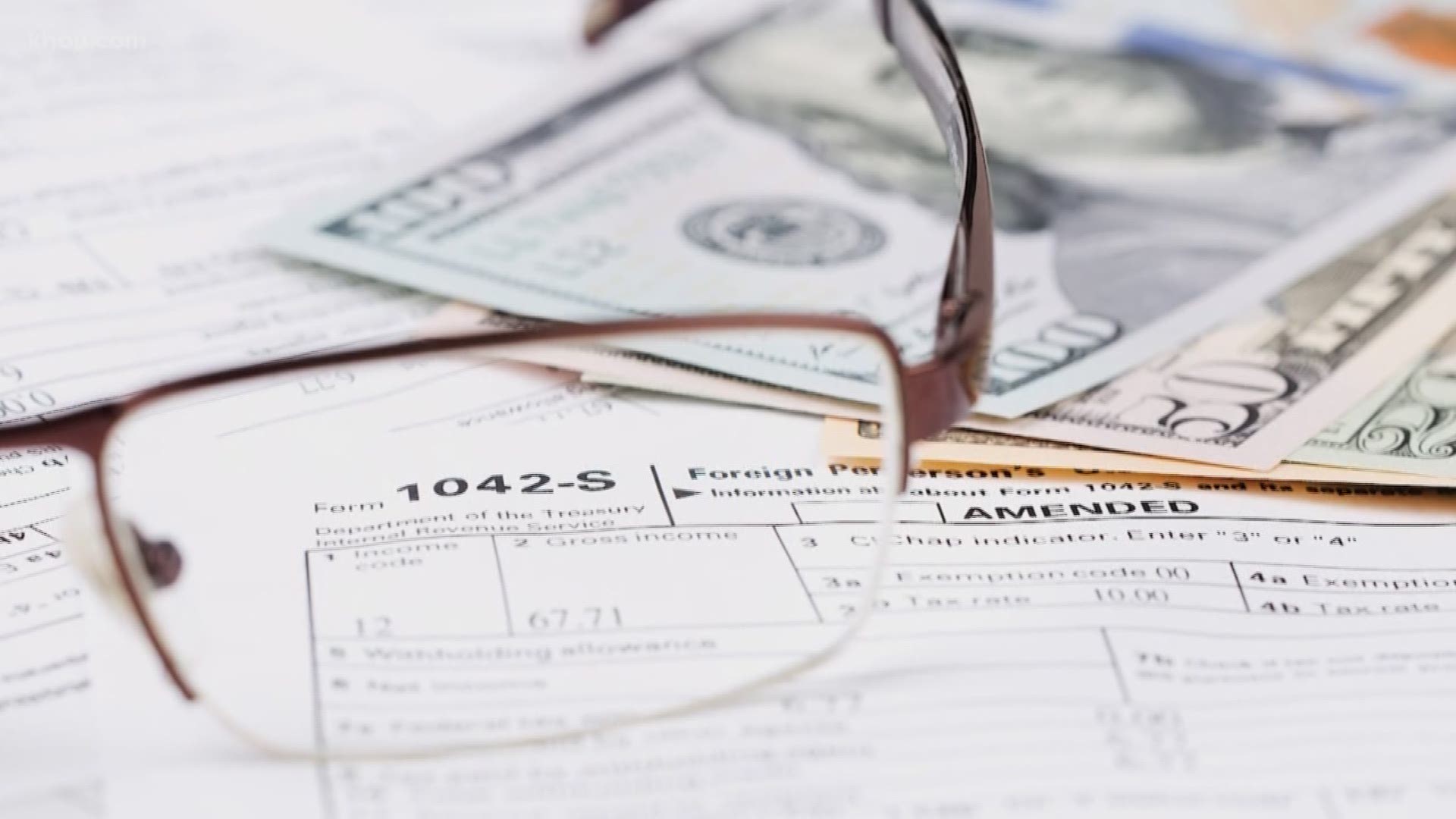HOUSTON — Millions of Americans are waiting for their check from the federal government after the Senate approved the $2 trillion relief package due to COVID-19.
The Treasury Department told senators that they expect to distribute the checks in the next two to three weeks, according to Texas Sen. Ted Cruz.
The checks are based on your income.
Individuals
- $75,000 or less: $1,200
- $75,001 - $98,999: decreases from $1,200 by 5 percent based on income
- $99,000 or more: no check
Families
- $150,000 or less: $2,400
- $150,001 - $197,999: decreases from $2,400 by 5 percent based on income
- $198,000 or more: no check
A spokesperson from Texas Sen. John Cornyn's office said the checks would not be counted as income or taxed.
She said retirees and those who receive Social Security benefits are eligible.
Many parents have questions about if their college student is eligible to receive money, or if they can receive money due to their child.
The spokesperson said that a "qualifying child" is defined by the IRS, generally, as someone under age 17.
If an individual is claimed as a dependent on someone else’s tax return, that individual is not eligible for a rebate check. For example, if a college student’s parent claims him or her as a dependent, the student will not receive a check.
A parent needs to meet the income qualifications to collect a rebate check, and if they do, their child needs to meet the definition of “qualifying child” above for them to collect the additional $500.
Generally, if the college student is 17 or over, the parent will not likely collect $500 for them.
A college student can claim the stimulus check, so long as they meet the above income requirements, are not claimed as dependents, and file a tax return with the IRS, even if they had no taxable income.
According to the IRS, those who have not filed a tax return for 2018 should do so immediately, or risk not getting a check.
The spokesperson said that so long as person fills out their tax return honestly and does not commit fraud, they will not have to pay back any of the money they receive in the stimulus check.
Coronavirus symptoms
The symptoms of coronavirus can be similar to the flu or a bad cold. Symptoms include a fever, cough and shortness of breath, according to the Centers for Disease Control. Some patients also have nausea, headaches and stomach issues.
Most healthy people will have mild symptoms. A study of more than 72,000 patients by the Centers for Disease Control in China showed 80 percent of the cases there were mild.
But infections can cause pneumonia, severe acute respiratory syndrome, kidney failure and even death, according to the World Health Organization. Older people with underlying health conditions are most at risk for becoming seriously ill. However, U.S. experts are seeing a significant number of younger people being hospitalized, including some in ICU.
The CDC believes symptoms may appear anywhere from two to 14 days after being exposed.
Human coronaviruses are usually spread through...
- The air by coughing or sneezing
- Close personal contact, such as touching or shaking hands
- Touching an object or surface with the virus on it, then touching your mouth, nose or eyes before washing your hands.
Help stop the spread of coronavirus
- Stay home when you are sick.
- Eat and sleep separately from your family members
- Use different utensils and dishes
- Cover your cough or sneeze with your arm, not your hand.
- If you use a tissue, throw it in the trash.
- Follow social distancing
Lower your risk
- Wash your hands often with soap and water for at least 20 seconds. If soap and water are not available, use an alcohol-based hand sanitizer.
- Avoid touching your eyes, nose, and mouth with unwashed hands.
- Avoid close contact with people who are sick.
- Clean and disinfect frequently touched objects and surfaces.
- If you are 60 or over and have an underlying health condition such as cardiovascular disease, diabetes or respiratory illnesses like asthma or COPD, the World Health Organization advises you to try to avoid crowds or places where you might interact with people who are sick.
Get complete coverage of the coronavirus by texting 'FACTS' to 713-526-1111.

